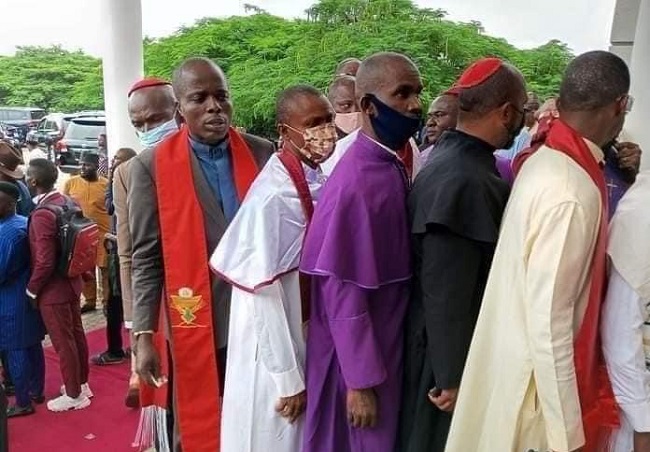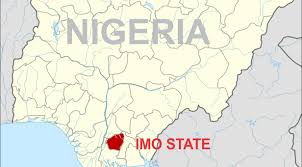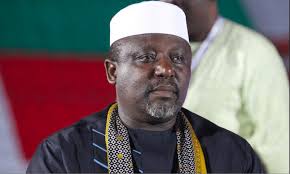Nigeria of the 1960s spent 30 months fighting to keep the country one. Men and materials were lost during this war in which the leader’s name seemed to be an acronym for Go-On-With-One-Nigeria.
At last, by this force of coercion rather than mutual love, Nigeria came together again. Although the war which ended 52 years ago with a no-victor-no vanquished pronouncement succeeded in keeping the country one, unfolding events after the war have unveiled the fragile nature of this costly oneness.The vast chasms along the lines of region and religion have been made more manifest now that the nation is experiencing what appears to be a democratic dispensation.
At the wake of every election season, the electorates are mentally grouped and counted as Muslims and Christians, North and South, Hausa, Igbo or Yoruba, minorities, etc, and candidates spend much of their time working out the mathematics of where the votes are and how to capture them.Instead of discussions on ideologies and ways to make life better for the citizenry, Nigerians are often engaged in analyses of where northerners or southerners will vote, or where Christians or Muslims are likely to pitch their tents. Parties and their programmes no longer matter but the region and religion of candidates.
As it is at the centre, so it is in the states and local governments where villages and hamlets are zoned for one political position or the other.With the conclusion of party primaries and the speedy approach of the 2023 elections, there have been raging arguments over the All Progressives Congress (APC) Presidential candidate, Asiwaju Bola Tinubu, and his running mate, Kashim Shettima, regarding what has now been known as Muslim-Muslim ticket.It was this needless ado about Muslim-Muslim ticket that pushed the APC into showcasing an array of tattered Christian clerics they called bishops at the unveiling of Tinubu’s running mate, just in the zeal to prove to Christians that the Muslim-Muslim ticket is also popular among them.
As naive as ever, Shettima made a show of the presence of his bishop friends at the ceremony, but skipped acknowledging the presence of Muslim clerics.Indications were that the so-called “bishops’ visit was arranged, otherwise, why did they all appear in the hall and leave at the same time, heading towards one direction? Why did they shy away from newsmen who sought to interview them and why were some of them poorly clad, in manners that were not in conformity to clerical practices? Were they bishops without dioceses? Unknown bishops?Indeed, the APC flag bearers needed not to go to that embarrassing length to seek acceptance.
Technically, no one can point at one thing wrong with a Muslim-Muslim ticket. It is clearly by choice and certainly not what anyone would tear his skin about. When President Buhari was accused of making lopsided appointments that were skewed in favour of his northern and Muslim brothers, did he not tell us that he chose people he knew more closely, who could work with him more effectively? Why the hullabaloo about same-faith ticket?Nonetheless, the society is to blame for pushing the APC into the temptation of apparently faking to get Christian support.
Had there not existed the Christian-Muslim and North-South dichotomies, such travesties would not have surfaced in our political arenas. We recall when Gov. Nasir el-Rufai of Kaduna State floated the idea of licensing clerics, Christian or Muslim, with a view to restricting un-certified ones from mounting the pulpits and turning peoples’ brains towards the wrong direction. No one listened to him. That would have put paid to the unknown bishops syndrome playing up because 2023 is at the corner.Was the hullabaloo actually needless? The Muslim-Muslim or Christian-Christian ticket might not matter, indeed. However, wise politicians try hard to strike a balance in the people they choose as running mates, perhaps because a pluralistic society such as Nigeria requires liberal minds as the leaders for there to be harmony. Bigots, or perceived ones, are unlikely to generate the required concord necessary for peaceful coexistence.
Besides, if a politician who seeks to lead his people on such a macro level as the presidency of Nigeria demonstrates a disregard for a section of the people, the consequence is a loss of camaraderie between the aspiring leader and the neglected group. In other words, how else would the Muslim aspirant prove his love for intended Christian subjects if not by accommodating some of their own in his innermost cabinet, and vice versa? If it didn’t matter, one could have picked his wife or son as running mate.The Abiola-Kingibe Muslim-Muslim ticket of 1993 might not be a perfect excuse for it today in view of the mistrust that have been copiously sown between adherents of these religions in the past eight years when churches and Christian clerics have been prime targets of terrorists who parade themselves as Muslims and, worst of all, enjoy the connivance of the authorities that have the responsibility to protect all subjects. Unlike today, the Abiola-Kingibe administration was to be transitional, from military to civilian, and the masses were aware that the military never tolerated the rascality of these extremists, which gave non-Muslims confidence in the system then.
Indeed, insurrections lasted only for days or weeks and never months and years. In any case, there has never been a same-faith presidency since the inception of Nigeria. Despite that the 1993 election was believed to have been won by the Abiola-Kingibe duo, it was never consummated for reasons inexplicable in the spirit realm.Today’s Nigerian Christians are the most wary group in the world, given that only Muslims occupy all the strategic security positions of the country, and they are the most persecuted, according to studies. We cannot deny the accusations flying around about the Islamization (some call it Talibanization) of Nigeria, and the fact that the body movements of those in power give credence to such suspicions. Let’s not also deny that our false federal structure has contributed 90 percent to our predicaments. A case where various groups scramble to reach the centre with the intention to dictate the fortunes of others in terms of national wealth distribution or even the rate at which other groups grow socially, educationally and economically, does not augur well for political stability.
Authors of democracy, such as America and Britain, can attest that democracy does not mean the exclusion and marginalization of the minority groups in a society and as long as Nigeria’s ‘federal’ structure remains what it is, so long will the country’s problem last.Truly, the much sought restructuring and true federalism has to happen for us to avoid the incidents of unknown bishops, among others.
“Technically, no one can point at one thing wrong with a Muslim-Muslim ticket. It is clearly by choice and certainly not what anyone would tear his skin about. When President Buhari was accused of making lopsided appointments that were skewed in favour of his northern and Muslim brothers, did he not tell us that he chose people he knew more closely, who could work with him more effectively? Why the hullabaloo about same-faith ticket?Nonetheless, the society is to blame for pushing the APC into the temptation of apparently faking to get Christian support”









